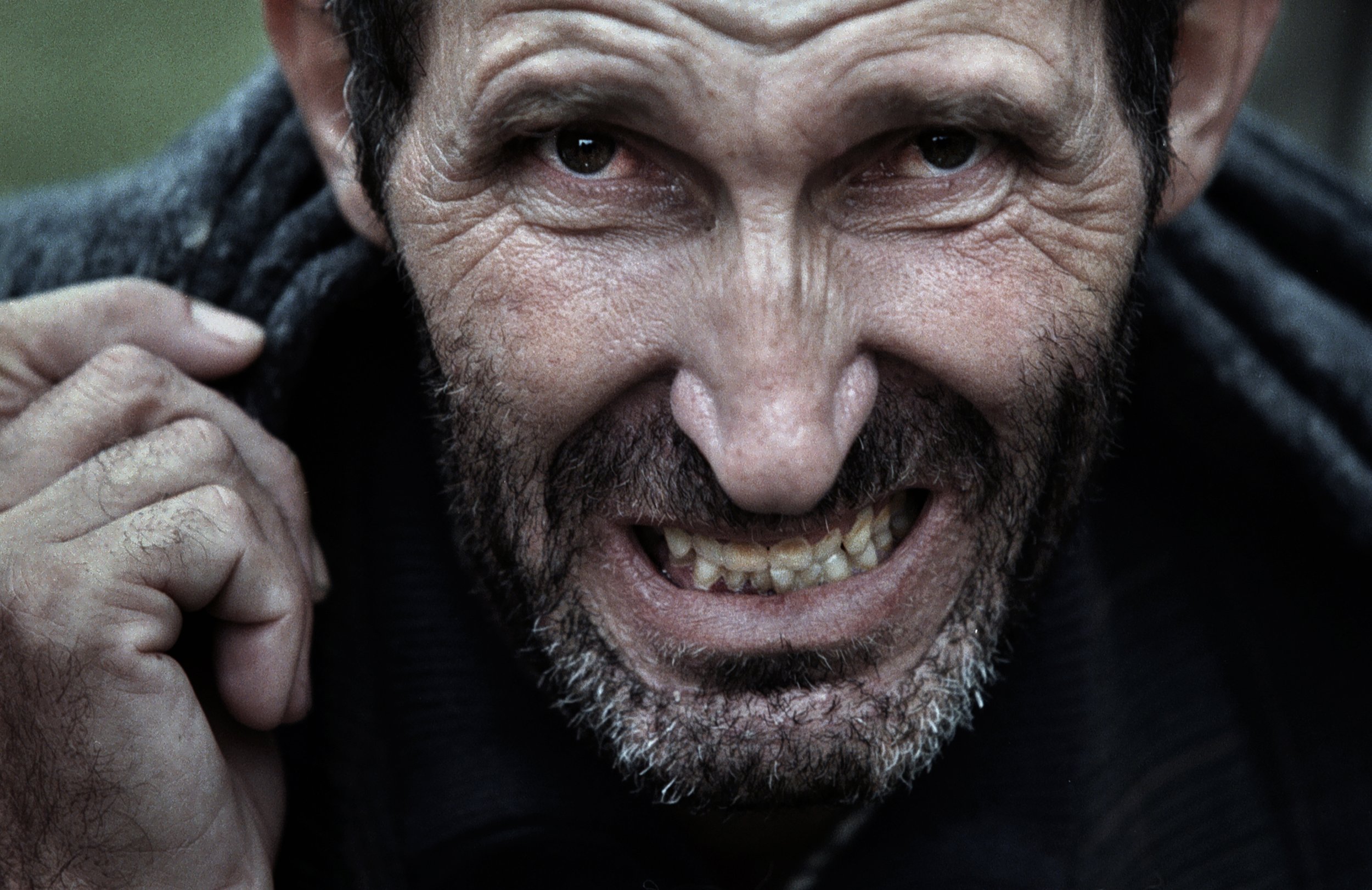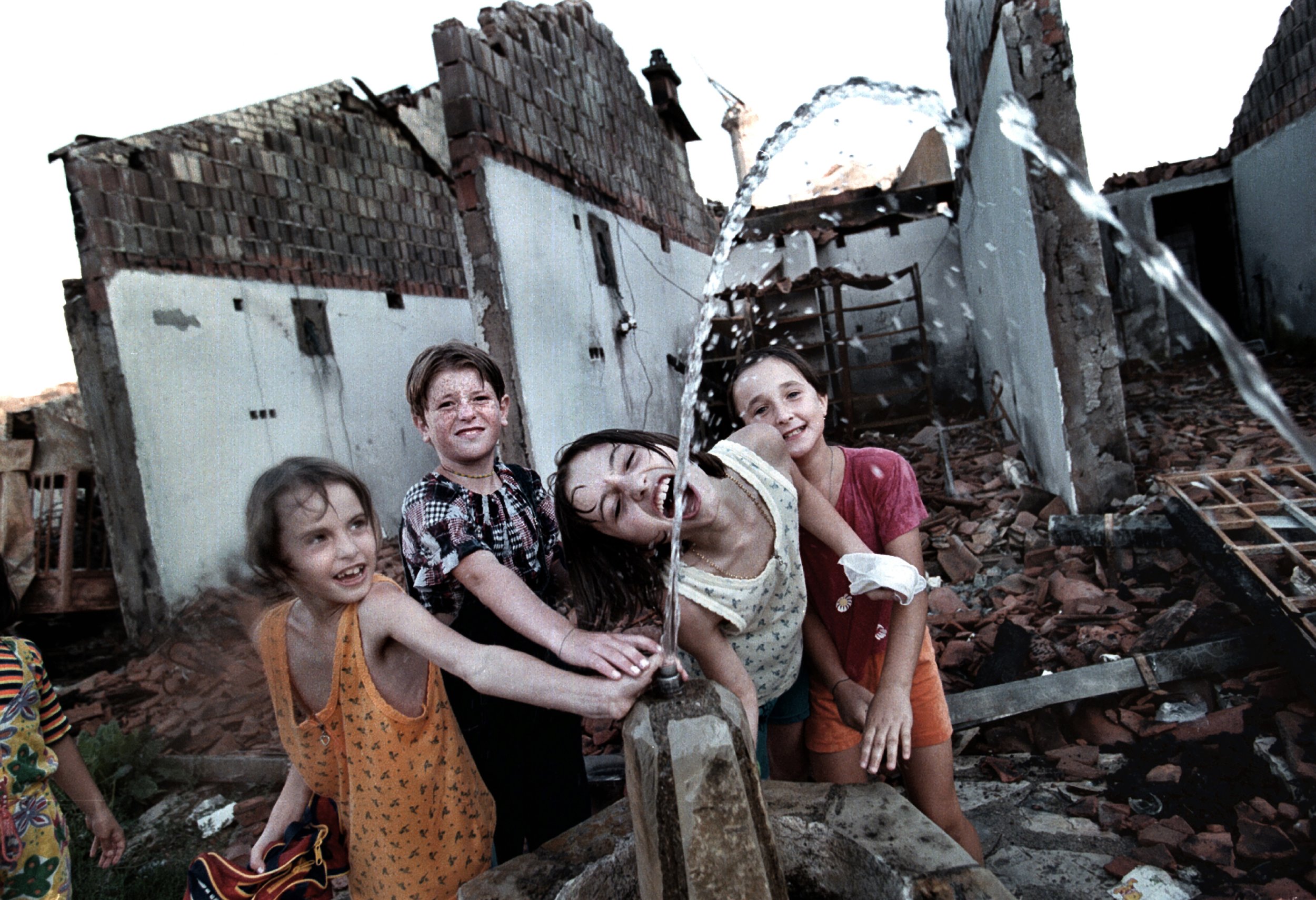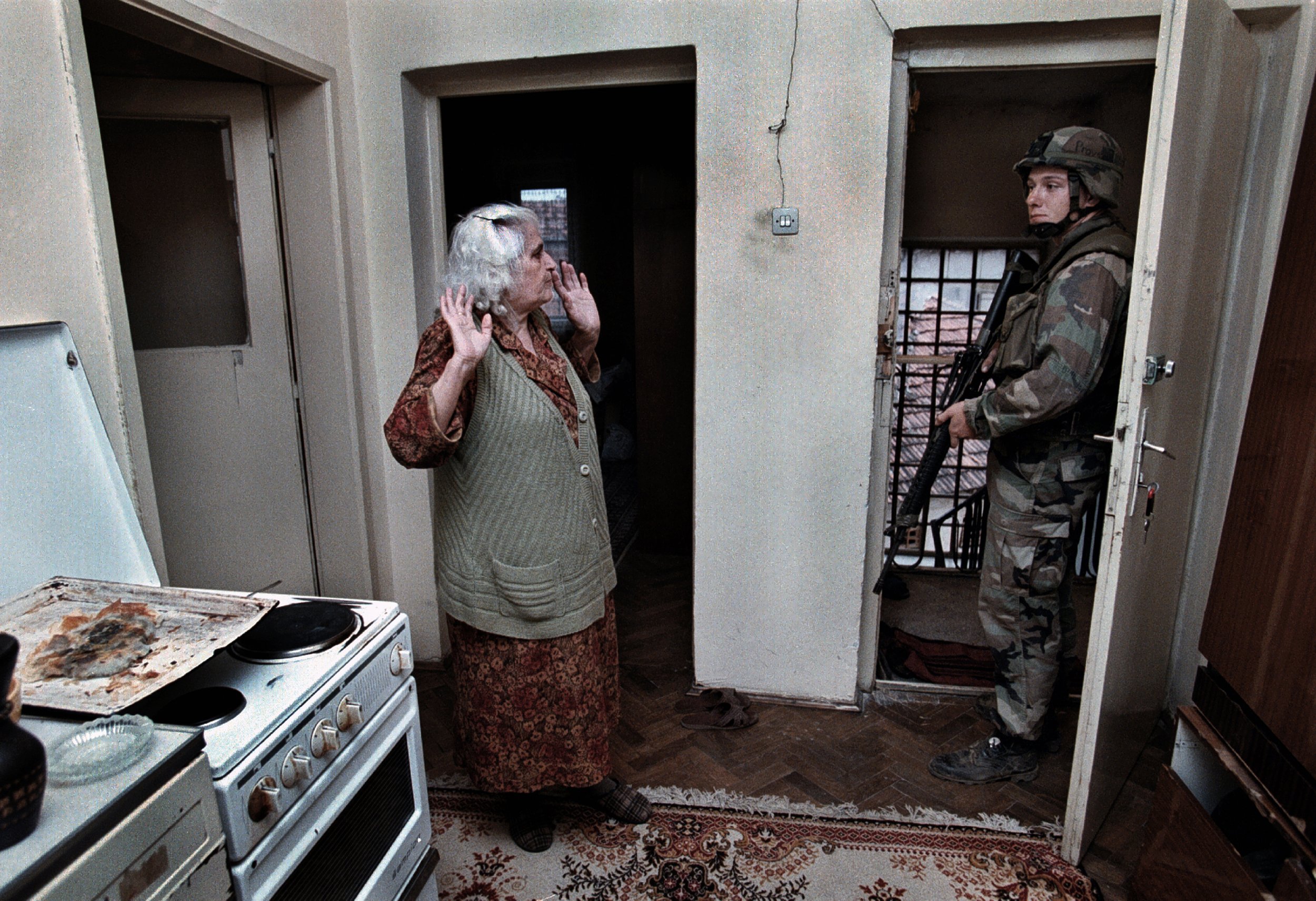Kosovo’s Sorrow
2000 Pulitzer Prize winner in Feature Photography
(shared with Michael Williamson and Lucian Perkins)
Kosovar refugee Agim Shala, 2 years old, is passed through the barbed wire fence into the hands of grandparents at the camp run by United Arab Emirates in Kukes, Albania. The members of the large Shala family were reunited here after fleeing Prizren in Kosovo during the conflict. (The grandparents had just crossed the border at Morina). The relatives who just arrived had to stay outside the camp until shelter was available. The next day members of the family had tents inside. The fence was the scene of many reunions. When the peace agreement was signed, they returned to Prizren to find their homes only mildly damaged. There were tears of joy and sadness from the family as the children were passed through the fence, symbolic of the innocence and horror of the conflict. Kukes, Albania May 3, 1999
Kosovar refugees weep as they cross the border by foot at Morina into Albania as they flee their troubled homeland. The group of mostly women, children and elderly men showed great distress. They were transported to camps in Kukes to wait with uncertainty during the conflict. Kukes, Albania April 16, 1999
Qendrim Avdullahu, 8 years old, stands atop a tractor outside the camp run by United Arab Emirates in Kukes, Albania on May 3, 1999. He gestures with the KLA victory sign. The refugees who just arrived had to stay outside the camp and sleep in their vehicles until shelter was available or they moved to other parts of the country. This transit camp filled and emptied day by day as the flood of refugees kept pouring over the border at Morini.
Sister Bernadette Ebenhoch, a Franciscan nun from Germany, provides aid for the suffering refugees of Kosovo in Kukes, Albania in May of 1999. She throws food supplies to Kosovars at a camp in Kukes on a day when there were none crossing the border. She has been in Albania 4 years and lives in Fushe Arrez, a 3 hour drive to the border.
Relatives came to the cemetery in Kukes, Albania, to bury the tiny casket. The mother was still in hospital and the whereabouts of father unknown, as with many of the Kosovar men who were detained by Serbs. The baby was laid to rest in a part of the city cemetery now reserved for Kosovars. Kukes, Albania May 4, 1999
Teuta Hajdari wails in grief after the burial of her uncle, Jashar Hajdari. His body was found with the body of his daughter, Elfie, in a grave of nine bodies in the village of Bukosh that the KLA opened. These family members arrived back in Kosovo from the Italian camp in Kukes, Albania, where they fled during the war. They were there three weeks and had previously lived in the mountains in fear of the Serbs. The man and his daughter were shot as they tried to reach their family in the mountains. Kosovo June 21, 1999
“Thank God I'm alive" said Ilir Bajraktari, 17 as he arrived back home to his village of Katuni I Ri, Yugoslavia (Kosovo) after being released from prison in Zeraqar, Serbia. On left is his cousin, Agron, 25, who greeted and hugged him. He and his brother and cousin (far left, Arjanit, 17) returned to their village and received a joyous welcome from their family. They had an outdoor meal with copious amounts of food and toasts to their happy return. Neighbors and friends rushed to the home when they heard the news. Ilir is not KLA, just wearing the KLA scarf of a friend. While they were sleeping in their home six weeks ago, Serbian police came about 8 a.m. and took the young men off to prison. They beat them and made them eat cigarettes. Their family stayed in Kosovo, but hid in the fields and mountains during the conflict. The young men were returned with a large group of prisoners by bus to the nearby city of Pec, which was the scene of much destruction. Kosovo June 26, 1999
UNICEF program counsels Kosovar children at the Greek camp in Kukes, Albania after their journey from their troubled land. Lindita Morina, 9 yrs old, (with wreath made by her mother) holds another refugee children during the session. Young refugees are counseled to help them deal with the psychological trauma of their ordeal. Through poetry, drawing and games they learn to express their emotions. The drawings are most often of the horrors they have seen, of killings and destruction. Their poems speak of freedom. The UNICEF volunteers visit each camp in Kukes on a daily basis. The children eagerly await this part of the day and shower them with love and gratitude. Kukes, Albania May 5, 1999
Additional Images by Carol Guzy of the crisis in Kosovo in 1999
To license these images contact The Washington Post newspaper.






















